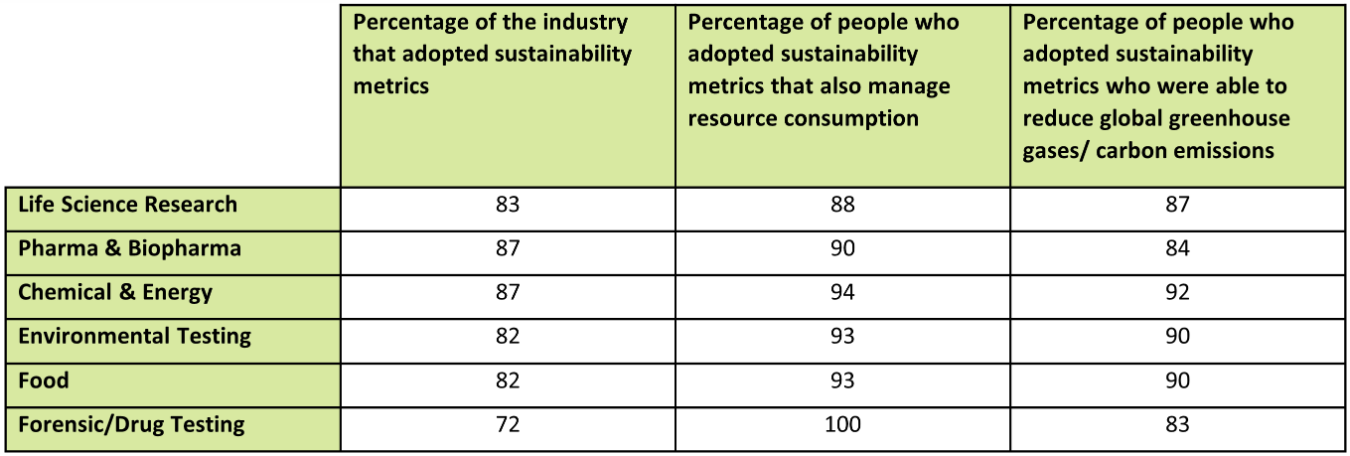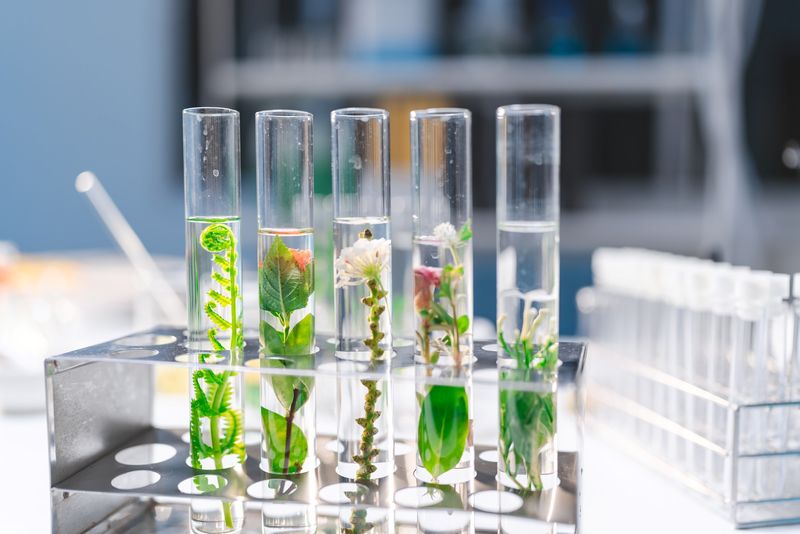Each year, it seems like more and more environmental devastation is happening across the globe: we have seen summer heatwaves, emperor penguins failing to breed due to the lack of sea ice, and many wildfires. So, there has never been a greater need for effective sustainability practices.
As such, sustainability has been a big discussion point in many sectors and numerous industries have been moving to make their field greener – and laboratories are no exception.
In traditional laboratories, there is often great wastage every day as people have to use new reagents and single-use plastics, along with high water and energy consumption. In the last few decades, there has been an upward trend in the scientific sector to increase sustainability practices throughout businesses.
Now, new survey results have highlighted just how laboratory science has been moving forward.
Survey details
This was a global survey of people in senior or top management positions in Germany, the UK, US, and China.
Six different industries were included in the survey: life science research; pharmaceutical and biopharma; chemical and energy; environmental testing; food; and forensic/drug testing.
How are labs trying to reduce their environmental footprint?
Data analytics from the survey revealed that many labs are thinking about environmental issues. In fact, 82 percent of labs have put sustainability metrics in place, with 64 percent of labs believing that they have medium to high levels of success when meeting their lab's sustainability goals.
There are many key areas that different industries are working on. These include:
- Carbon and greenhouse gas emissions: 72 percent of labs are working on reducing their emissions.
- Water and energy consumption: 68 percent are focusing on reducing or optimizing water and energy use.
- Waste management: 60 percent are trying to improve waste management techniques.
There are many internal initiatives and education policies that are being put in place all around the world. This includes routine evaluations and monitoring. Success in achieving these goals is reliant on internal factors like organized protocols, initiatives, education, and training for increased awareness.
Instrument choice is very important
Instruments are the heartbeat of any laboratory. They are what keep everything ticking and are invaluable. When it comes to purchasing new or updated equipment, it is taken very seriously.
In the survey, it was highlighted that one of the things that the decision makers are concerned with is whether the vendor itself has certified sustainable instruments that follow environmental standards and are eco-friendly. Seventy-four percent of labs surveyed said that if a vendor did not have a documented commitment to achieving net zero, then they would not work with the company.
Vendors like Agilent have a key role to play in the improvement of lab sustainability not just from a technological development point of view, but as an operations partner that can work with labs to ensure they maximize their assets and ultimately, their performance.
Neil Rees, Head of ESG Programs at Agilent Technologies
A large proportion of labs (85 percent) looked at whether the chosen analytical instruments could support reducing their emissions. There was also a high interest in what happens at the end-of-life of an instrument.
What about when instruments need to be thrown away?
When it was time to say bye-bye to old, trusted lab equipment, the survey respondents wanted to ensure that the instruments were taken away to appropriate recycling services. This is no surprise, as electric waste and landfills are a big issue.
End-of-life recycling was valued so much that 9 percent of people are willing to pay for this service, and labs may even pay 5-6 percent more than the cost of the instrument to get this recycling benefit. So, it is clearly something that is highly considered when looking at potential vendors, and companies are taking note of this and producing sustainable schemes.
“Agilent, for example, offers trade-in and buyback opportunities on lab assets to simultaneously support labs’ efforts to achieve environmentally responsible disposal and their sustainability goals,” Neil Rees, Head of ESG Programs at Agilent Technologies, told IFLScience.
How do different industries compare?
As mentioned above, this survey was across different industries. This provided insight and scope for comparison, as different industries had variable adoption rates of sustainability metrics – luckily for the future of our planet, all of them were high.
At the lower end of the scale, forensics came in at 72 percent adoption, and at the higher end, there was chemical energy, along with pharma and biopharma at 87 percent.

The different industries also used metrics to see how they managed resource consumption. Life sciences had the lowest usage at 88 percent, whereas forensic and drug testing was the highest at a whopping 100 percent.
Lastly, the aim for many industries was to try and reduce global greenhouse gas and carbon emissions: pharma and biopharma were on the lower end of the scale at 84 percent and chemical and energy were the highest with 92 percent.
What does all of this mean?
“Ultimately, the bottom line is that sustainability is about efficiency, and sustainability metrics enable more informed business decisions and input on areas to improve efficiency. It's all about being competitive in business and running a lab effectively and efficiently while at the same time doing good for the world,” Rees told IFLScience.
Overall, it is very important that there is a check-in with how the industries are responding to sustainability problems. It is equally important for industrial companies to realize the sustainability targets for their laboratories.




